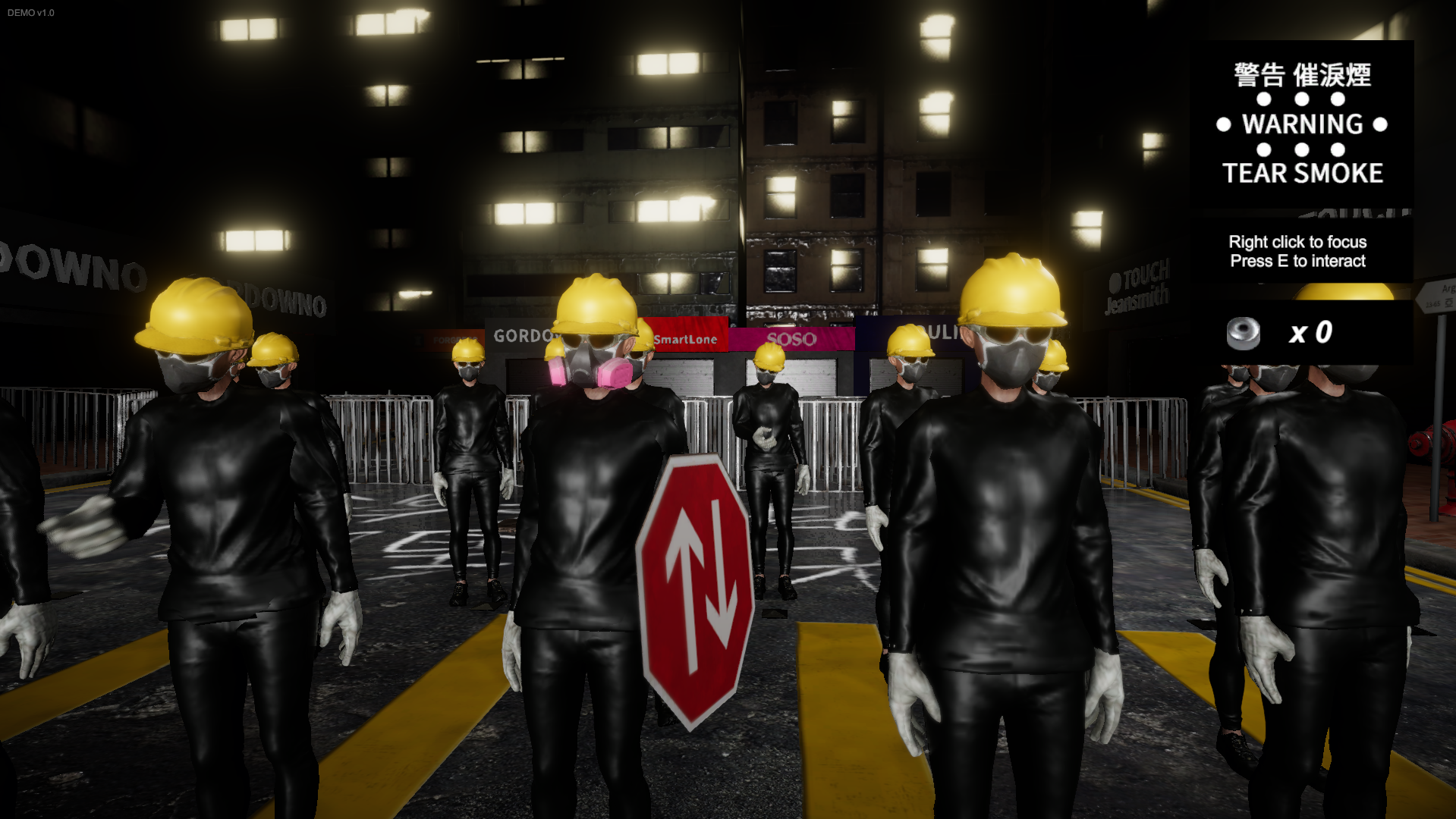Why Won't Steam Approve These Games Supporting Hong Kong Protestors?
by Jennings Brown
Last year Valve proclaimed that it would allow virtually any game on its Steam service, so long as the game wasn’t illegal or “straight up trolling”—but activist-minded developers who have made games about the Hong Kong protests have realised that, perhaps, there are other ways to get barred from the gaming platform.
Two developers recently tried to launch games inspired by the pro-democracy protests (also known as the Anti-Extradition Law Amendment Bill (Anti-ELAB) movement), on Steam. In one game, Liberate Hong Kong, players take to the streets dressed in black clothes, hard hats and gas masks, and try to dodge tear gas and rubber bullets.
The Hong Kong-based developers submitted their game to Steam on October 18. Steam’s site says it usually takes three to five days before applicants find out if their game will be released or to receive feedback about the game. But the developers told Gizmodo that they haven’t received any notice from Steam, despite enquiring about the status on October 30 and November 26.
“We understand that Steam has some concern with losing market from China,” Tom Chan, one of the developers, told Gizmodo in a message. “We hope that we can at least communicate first.”
In an open letter to Steam, the Liberate Hong Kong team wrote that they “are deeply concerned with this situation and would like for a detailed explanation for this timely review process.”
The letter adds that there have “been multiple instances of political censorship against contents in relation to the Hong Kong protestors since the Anti-ELAB movement, and it would not be a surprise to people of the free world if this is another case of such censorship in order to be in good terms with a certain oppressive regime to suppress democracy, freedom, and human rights.”
The developers of another game inspired by the Hong Kong unrest are also frustrated with Steam.
Karma is a dystopian visual novel that is inspired by the “sadness and sorrow in Hong Kong,” according to its website. The game’s developers originally submitted Karma to Steam for review on October 6, then resubmitted the game after fixing a bug on November 4.
Steam’s messages to the Karma team, reviewed by Gizmodo, show that Steam responded to the developer’s inquiries by saying the review is taking more time than usual due to the “Controversial and potentially illegal content” of the game.
If Valve is holding off on approving these games, it wouldn’t be the only gaming company to make controversial decisions related to the Hong Kong protests. In October, major US game developer Blizzard suspended a professional player of the game Hearthstone after he ended a game with a statement of support for the Hong Kong protestors.
Days earlier, the NBA got embroiled in a similar controversy after the Houston Rockets’ general manager tweeted his support for the movement.
China began granting game licenses in April of this year, after regulators put a hold approving new games in March 2018. A few months after the hold was lifted, Valve partnered with a Chinese company to release a Chinese version of Steam in the area.
Valve did not respond to Gizmodo’s request for comment about the approval status of Liberate Hong Kong or Karma. Specifically, we asked about the status of the delayed approval process and what it meant when it told developers that their content was “potentially illegal.”
According to the Karma web site, all of the game’s revenue from the first six months will be donated to the Hong Kong pro-democracy movement.
Arte Lee, one of the members of the Karma team, told Gizmodo that the developers are “very disappointed” in Steam since the platform hosts many other political games that directly relate to real people and events, while Karma is a fictional game about a dystopian future.
“It seems like they care [about] money more than freedom of artistic creativity,” Lee said in a message, punctuated with a sad-face emoji.